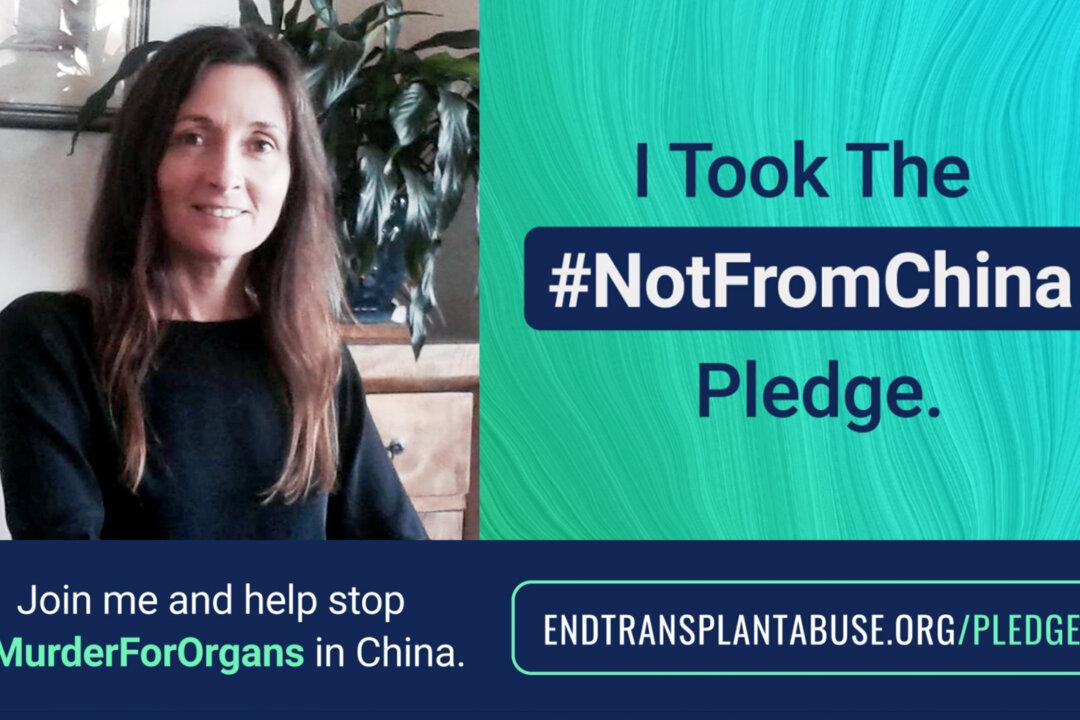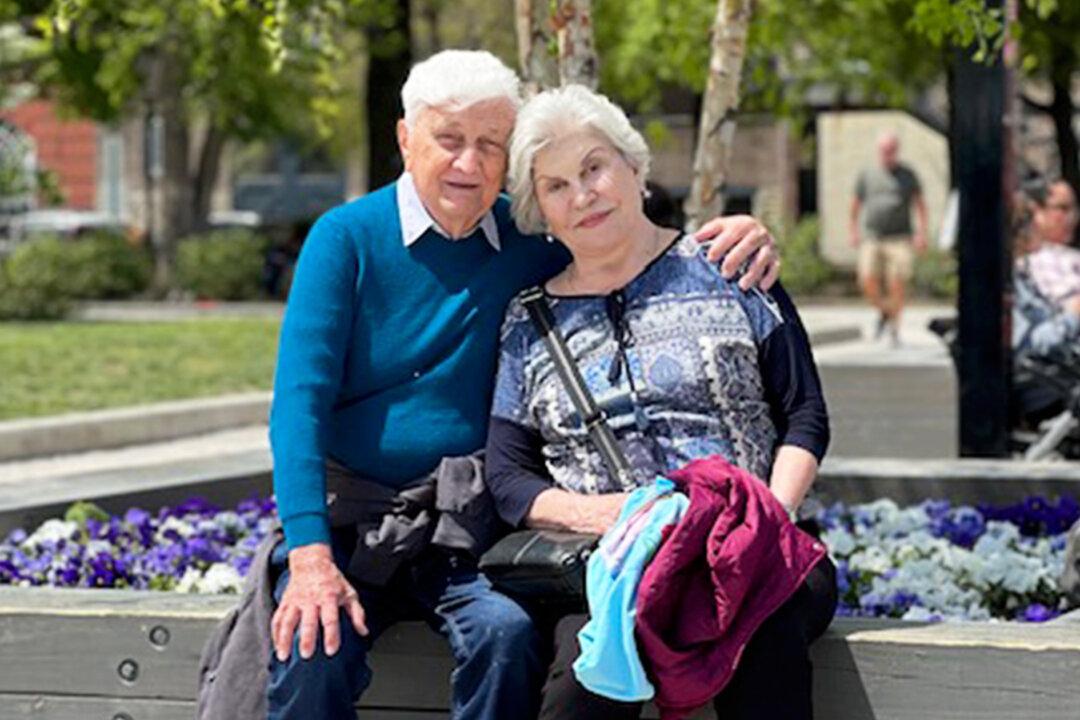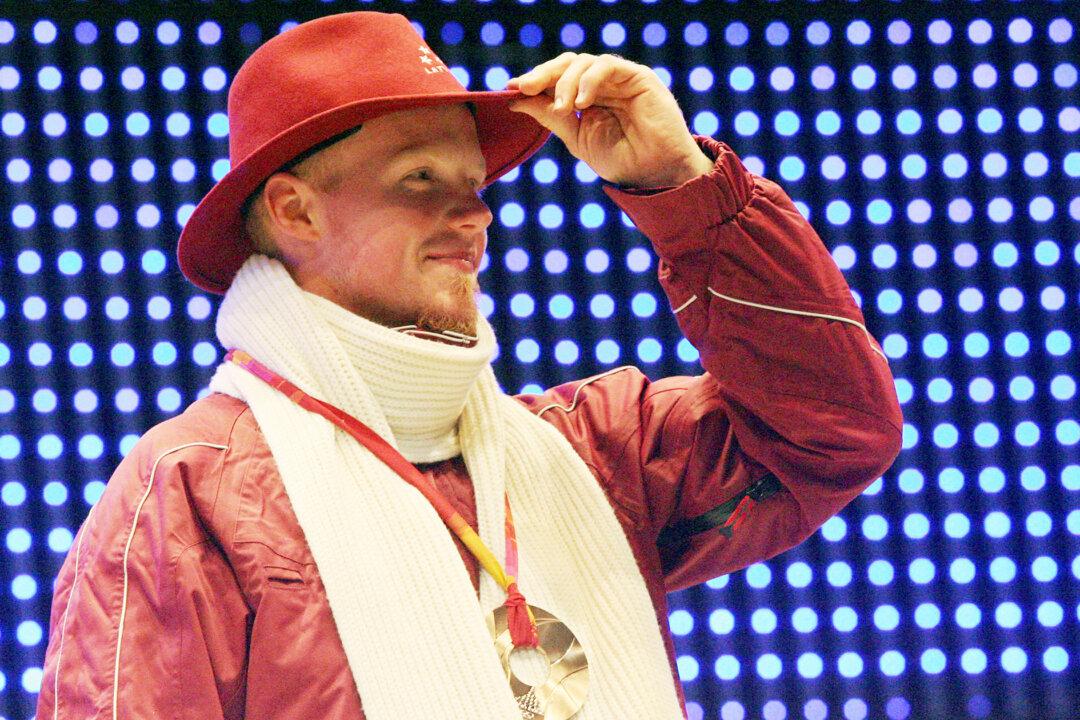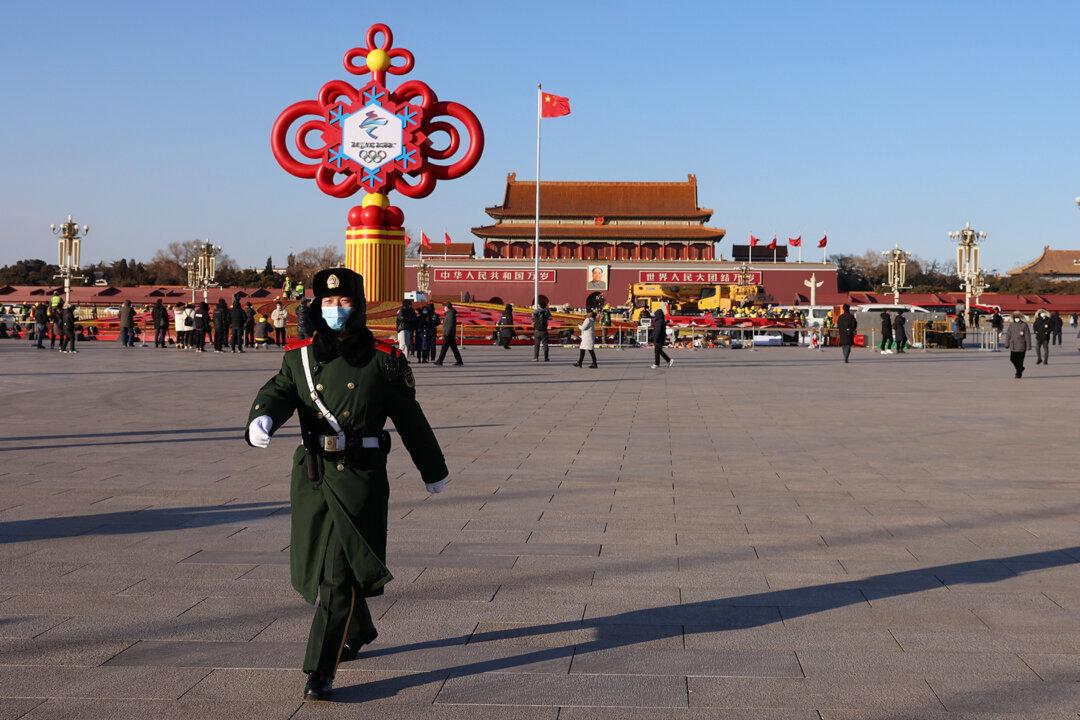An Australian education professional who was in disbelief after coming across a petition table about people being killed for their organs by the Chinese regime set out to verify the claims for herself. After studying all available evidence, she not only discovered that it was true, but that state-sanctioned forced organ harvesting was a billion-dollar industry.
As the coalition’s executive director, Hughes coordinates more than 75 volunteers and has grown the organization into a well-respected, high-profile international presence.
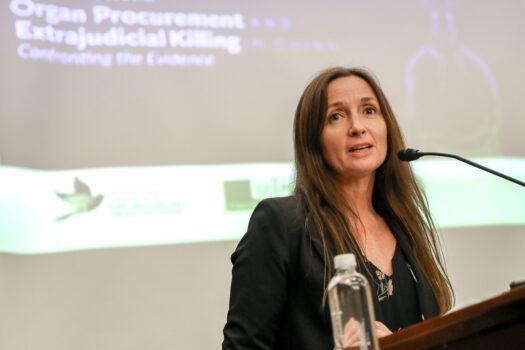
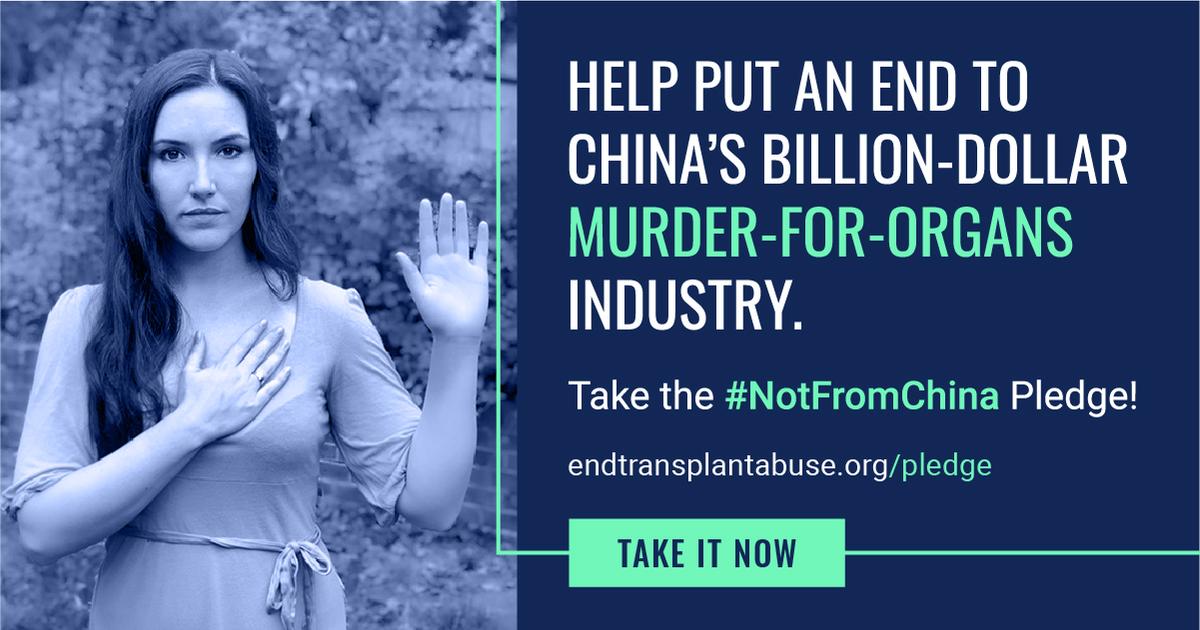
Most recently, Hughes led ETAC’s December launch of the #NotFromChina Pledge, a campaign co-sponsored by China Aid and the Victims of Communism Memorial Foundation (VOC) that gives every individual who cares about the issue an opportunity to help stop any further killing of people for their organs by the Chinese Communist Party (CCP).
“Don’t trust the CCP,” Hughes told The Epoch Times. “Sometimes people overlook the crimes the Chinese Communist Party is perpetrating against the Chinese people, and others around the world, because of business interests, or wanting to access something that China has to offer. But none of that is worth turning a blind eye to an atrocity as bad as this. Take the #NotFromChina pledge to help end the murder for organs in China.”
“They’ve been amazing and a real inspiration,” she said, adding that other partners include World Without Genocide, the Raoul Wallenberg Centre for Human Rights, Freedom United, Families of the Missing, Stop Uyghur Genocide, the Falun Dafa Information Center, Justice for All, and more.
‘My First Reaction Was Disbelief’
Hughes first came across the issue of forced organ harvesting when visiting a coastal town near Noosa Heads in Australia, but found the information just too hard to believe.“There was a petition table in the park near the beach. When I read the petition, which was about people being killed in China for their organs, I was shocked,” Hughes said.
“My first reaction was disbelief—surely this couldn’t be happening. I then proceeded to read all that was available on the issue.”
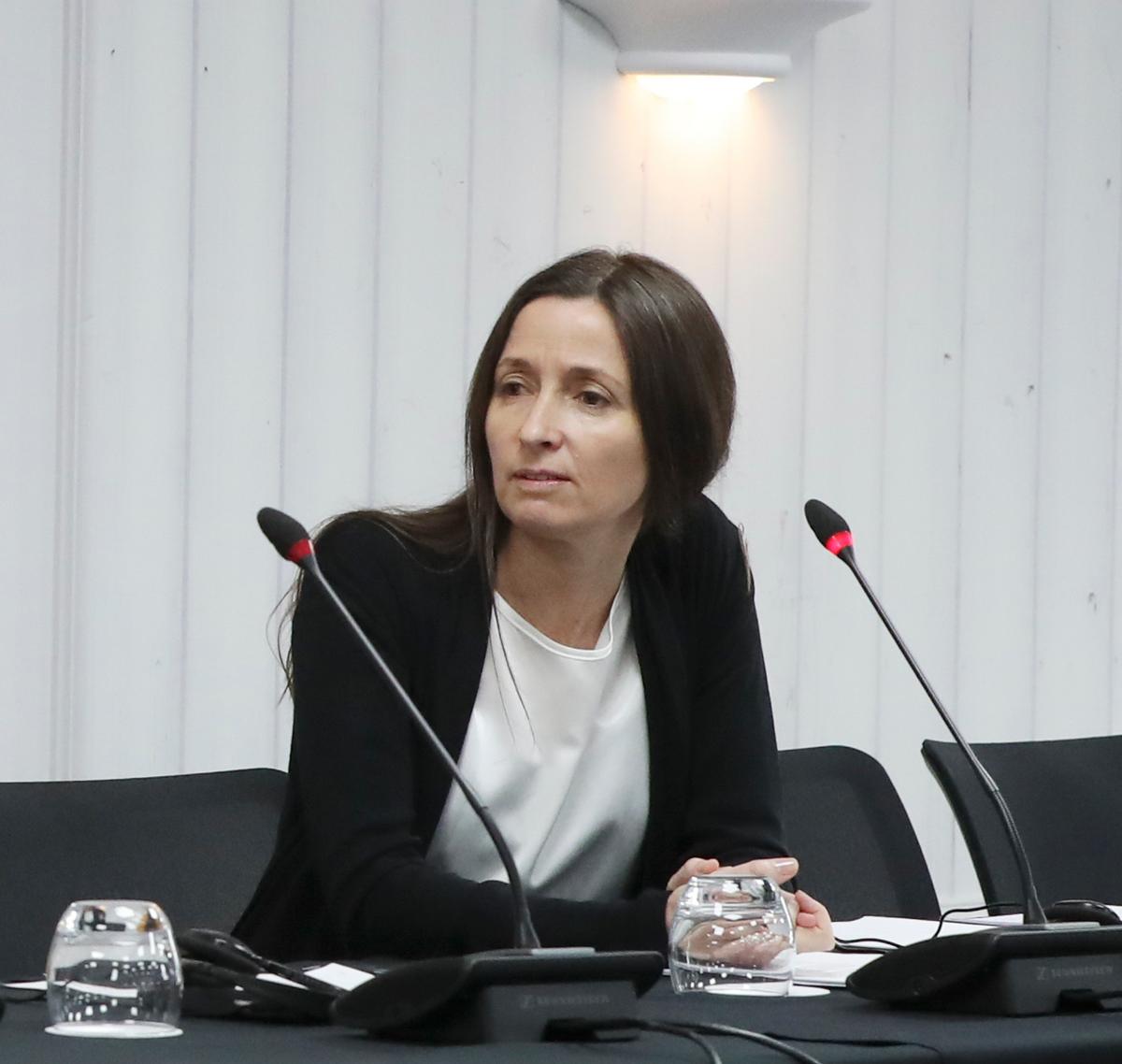
“I came to the realization that it was true,” Hughes said. “My next thought was: ‘Why don’t people know about this? And why aren’t the major human rights organizations doing anything about it?’”
A Coalition Is Formed
Hughes said that, after seeing the documentary, a group of lawyers, academics, ethicists, researchers, medical professionals, and human rights advocates began meeting regularly in Sydney. The meetings were chaired by Hughes and involved discussions about potential legislation and outreach activities that would bring more awareness of the issue to the public and to policymakers.With the intent to join forces, Hughes took the opportunity to travel to Stockholm during the roundtable filming and approach the four of them about collaborating on co-founding an international NGO dedicated to ending forced organ harvesting in China, to which they all agreed.
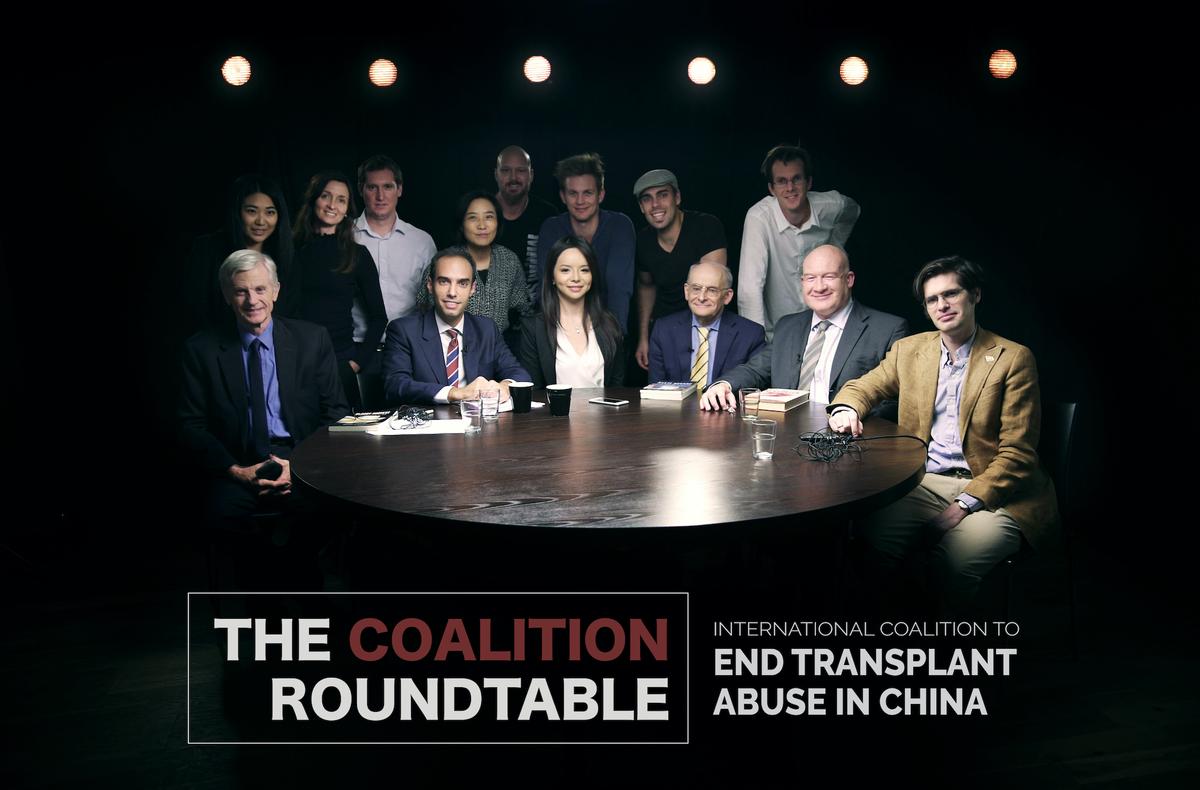
Taking the lead, Hughes registered ETAC in Australia in 2017 as an independent nonprofit organization and has dedicated herself to its mission ever since.
As ETAC’s co-founder and executive director, she’s spent the past four to five years liaising with key stakeholders—ambassadors, government, legal and medical professionals, victim communities, and other nongovernment organizations—in the United States, the UK, Canada, Australia, New Zealand, Europe, Korea, and Japan, organizing and hosting various advocacy and community education initiatives, events, and programs globally to bring greater scrutiny and awareness of transplant abuses in China. She said she’s received “incredible support.”
“My colleagues at ETAC are really incredible people,” Hughes said. “A number of them have been with the organization since its inception and give an extraordinary amount of time to ETAC’s work pro bono.
“I’m very fortunate to have a husband who is always there to support and who helps ETAC’s activities in a number of different ways. My friends and family are also very supportive and have shown a lot of interest in the issue.
“We also now have a great network of supportive organizations that we partner with on different campaigns and events. It’s really fantastic to work with so many motivated and experienced people from these organizations, and it’s made the world of difference to the issue.”
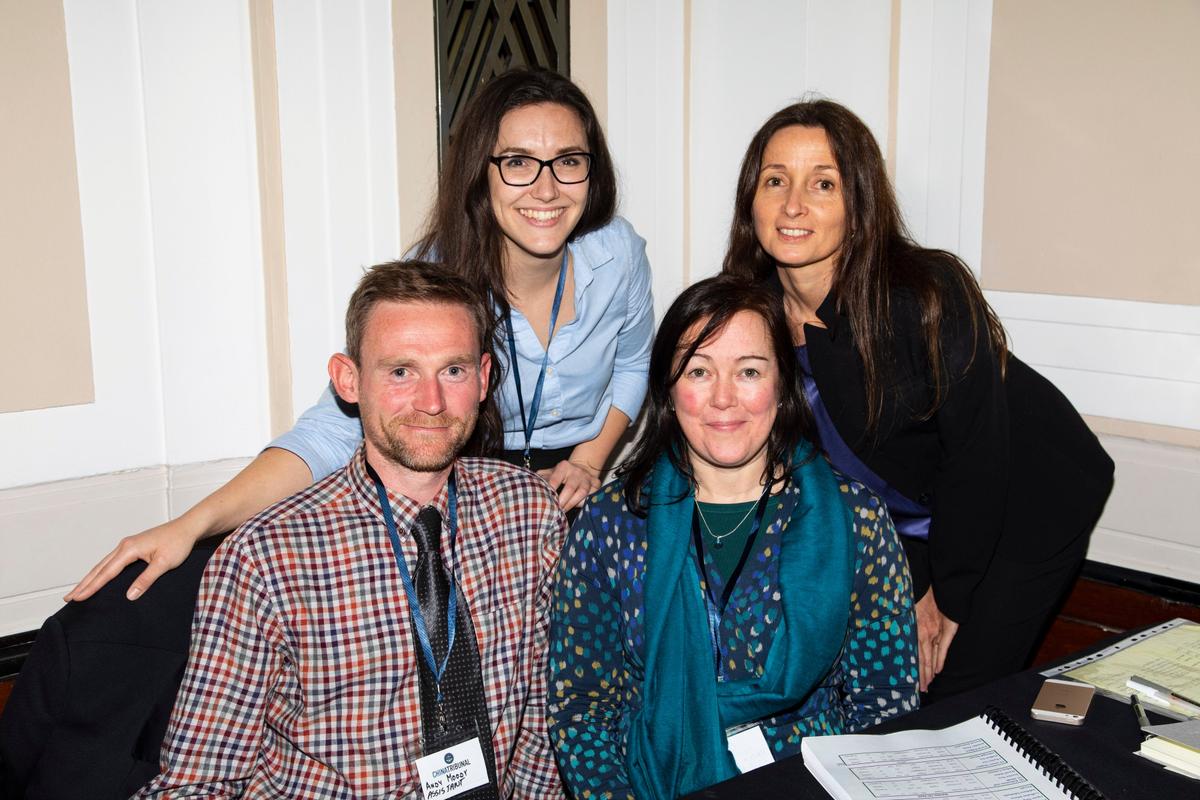
The China Tribunal
One of the most important initiatives by Hughes during her work at ETAC to date has been the 2018 formation of the China Tribunal—an independent people’s tribunal to inquire into forced organ harvesting in China.According to the tribunal’s website, people’s tribunals have been used before by citizens to investigate a range of human rights abuses, and they typically deal with grave crimes committed during events of mass suffering and killings that official international organizations are unwilling, unable, or too fearful to investigate.
Although multiple reports from credible sources since 2006 had demonstrated evidence of forced organ harvesting, Hughes found that “controversy persisted,” and governments and organizations weren’t undertaking investigations.
“This has been partly due to the readiness of some governments and international transplant organizations to accept the Chinese government’s ‘reform’ narrative, despite a continued lack of transparency that breaches the international standards promoted by these same organizations,” Hughes said.
Therefore, to progress the debate about whether China has been killing innocent people for their organs, ETAC decided to approach distinguished barrister and expert in crimes of mass atrocity Sir Geoffrey Nice QC for an independent legal opinion. Nice had previously led the prosecution of former Serbian President Slobodan Milosevic during his work at the International Criminal Tribunal for the former Yugoslavia, a United Nations court of law that dealt with war crimes.
“In response, Sir Geoffrey Nice recommended that a people’s tribunal be formed, of which he would be willing to act as chair,” Hughes said. However, there needed to be a separation between ETAC and the tribunal for it to be truly independent; thus, ETAC was at no stage privy to the tribunal’s deliberations, Hughes said, and counsel to the tribunal Hamid Sabi acted as a shield between ETAC and the tribunal.
“Specifically, the tribunal’s mandate was to hear and assess evidence to determine whether forced organ harvesting is occurring in China, and if so, what, if any, international crimes have been committed,” she said.
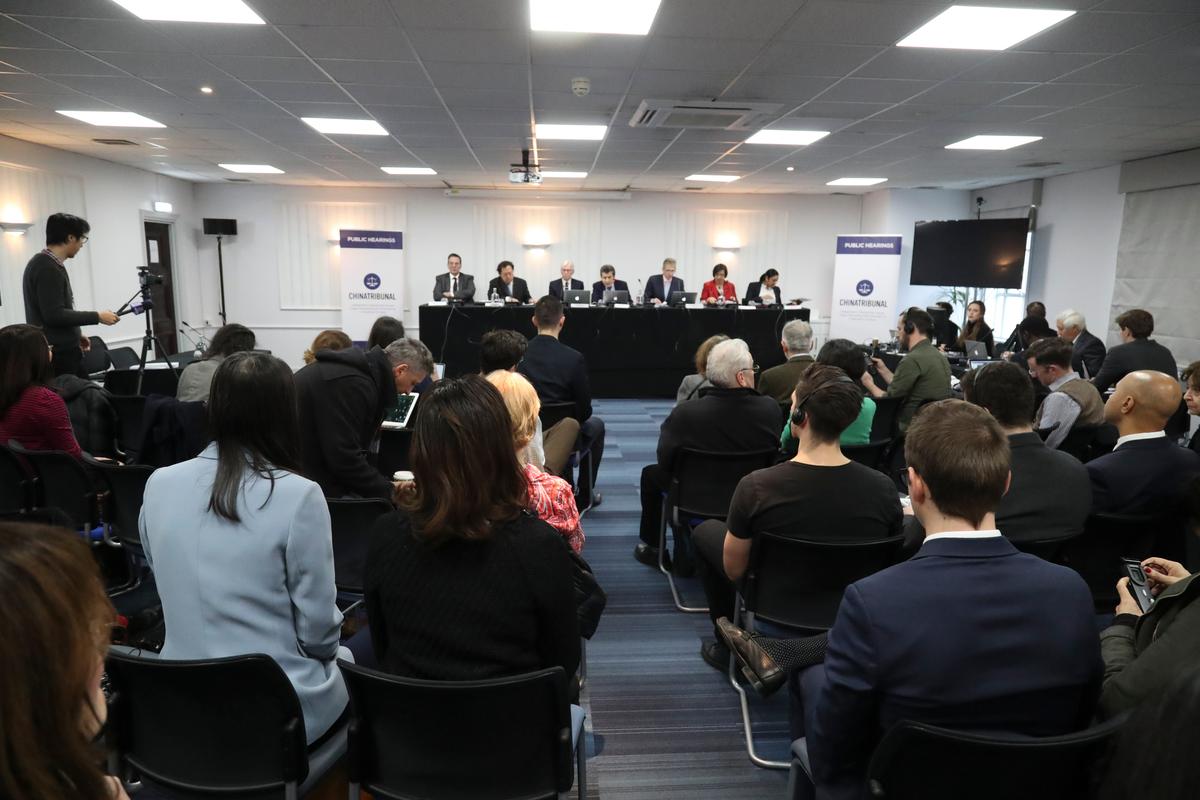
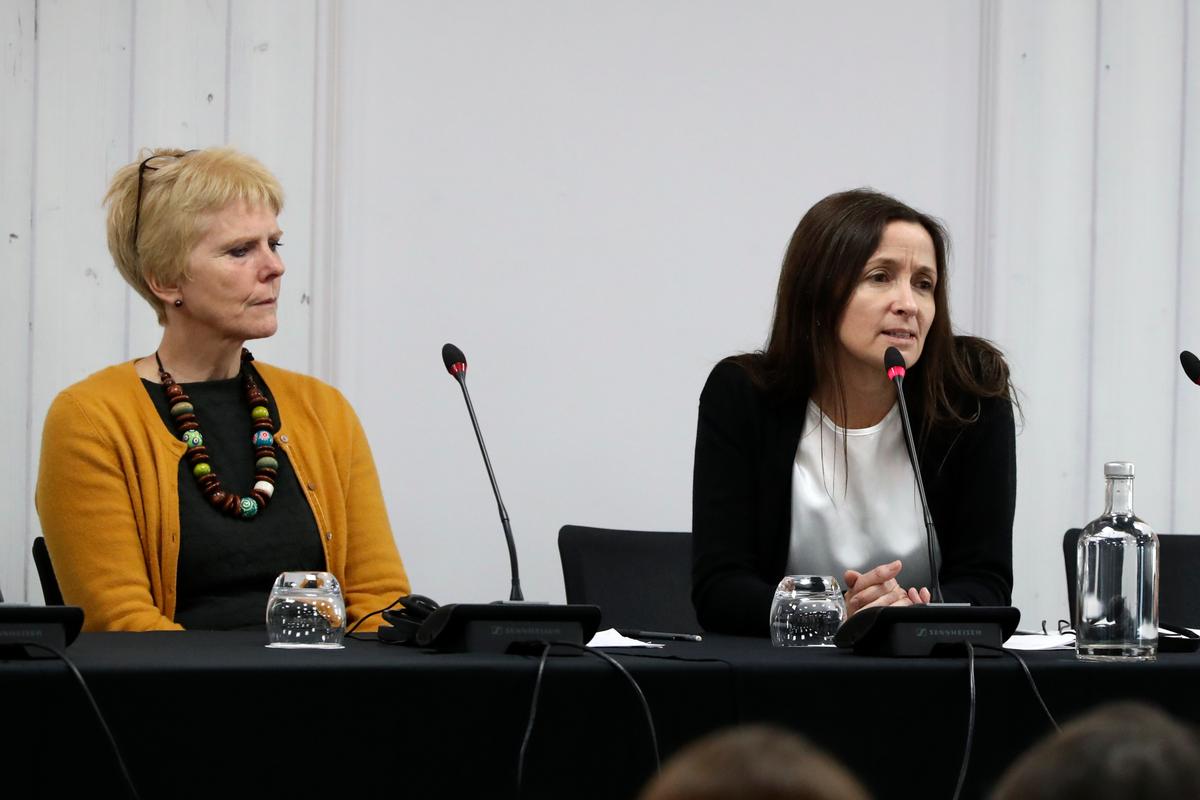
The tribunal’s first public hearings took place in central London at the De Vere Grand Connaught Rooms from Dec. 8 to 10, 2018, where it heard evidence from 30 fact witnesses, investigators, and experts. The tribunal issued an interim judgment at the conclusion of the third day of hearings on Dec. 10, which coincided with Human Rights Day and the 70th anniversary of the adoption of the Universal Declaration of Human Rights. The final judgment was released at an event in London in June 2019 after the second public hearings of 24 more testimonies took place from April 6 to 7, 2019, with the full judgment being released in book form in March 2020.
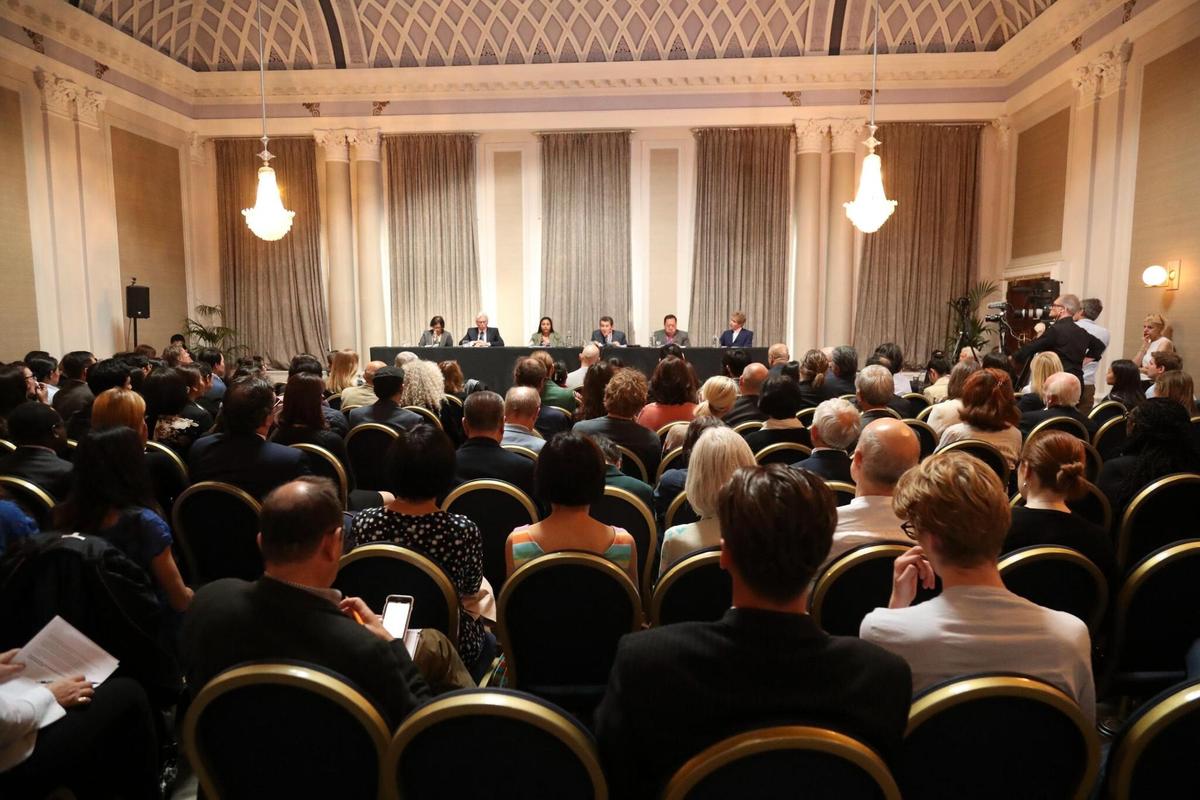
Hughes traveled to London for the China Tribunal proceedings, where she managed the logistics and gave a press briefing.
“The testimonies from the Falun Gong practitioners and Uyghurs who have been detained in China really impacted me,” she said of the tribunal. “I couldn’t say one more than another—they all detailed experiences that most people would not even be able to imagine.
“Even though I know this issue so well, and I know the details of what happens—the torture people are subjected to; the inhumane conditions they are forced to live in; the tiny, overcrowded cells; and the forced organ scans—seeing the witnesses recall these memories during the China Tribunal hearings and seeing the pain they endured made it very real.
“It’s beyond what most of us could ever imagine. The injustice is tremendous. The China Tribunal was a step toward justice for these people, which, at the same time, was really very heartening.”
Hughes said that seeing the evidentiary picture come together was “incredible” and that the tribunal’s judgment attracted “a huge amount” of media coverage at the time, “which was fantastic.”
“The China Tribunal’s judgment made it very clear that the multiple lines of evidence presented revealed a picture of systematic, institutionalized, and intentional organ harvesting from innocent people, and of course, that it amounted to crimes against humanity,” she said. “There was no longer any question that these crimes were being perpetrated by the Chinese state.”
Since the tribunal’s judgment was handed down in June 2019, Hughes has spoken about the findings at several events around the world, including at a side event at the United Nations Human Rights Council in Geneva in September 2019; at the World Uyghur Congress Conference in Brussels in December 2019; and at the policy forum on organ procurement and extrajudicial execution in China on Capitol Hill in Washington in March 2020, which was a VOC event co-sponsored by ETAC.
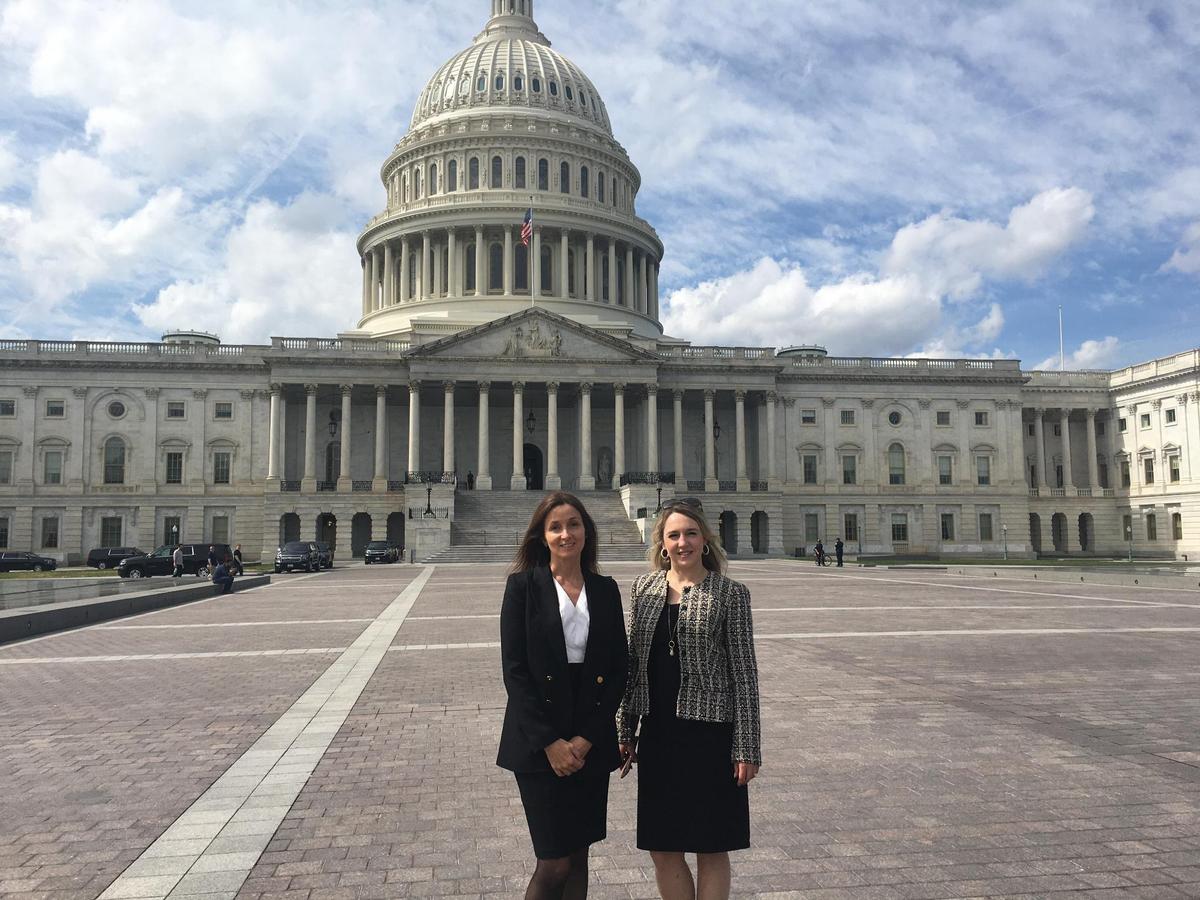
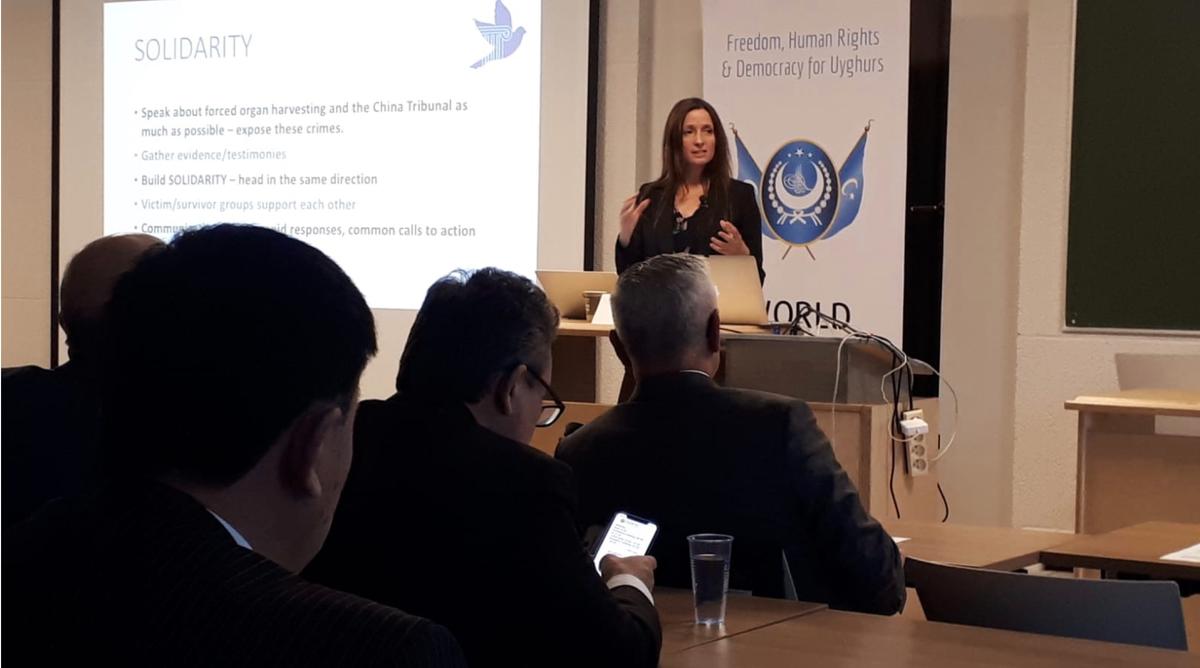
‘Take the Pledge’
Though black-market organ trafficking does happen outside of China, Hughes said that state-sanctioned forced organ harvesting is an atrocity unique to the Chinese regime.“Atrocities that aren’t addressed worsen,” she said. “While the carrying out of these horrendous acts is most certainly a crime against the individuals who are killed and their families, it’s also an attack on the sanctity of human life, and a crime against all of humanity.
“It is our responsibility as global citizens to do all that we can to stop it. Not only to fulfill our human duty to help others, but also so we don’t head toward a future where forced organ harvesting becomes normalized and spreads to other regions. A situation where certain citizens, good people who are deemed enemies of the state, are held captive as a commodity—nothing more than a ‘crop’ of body parts to be harvested.”
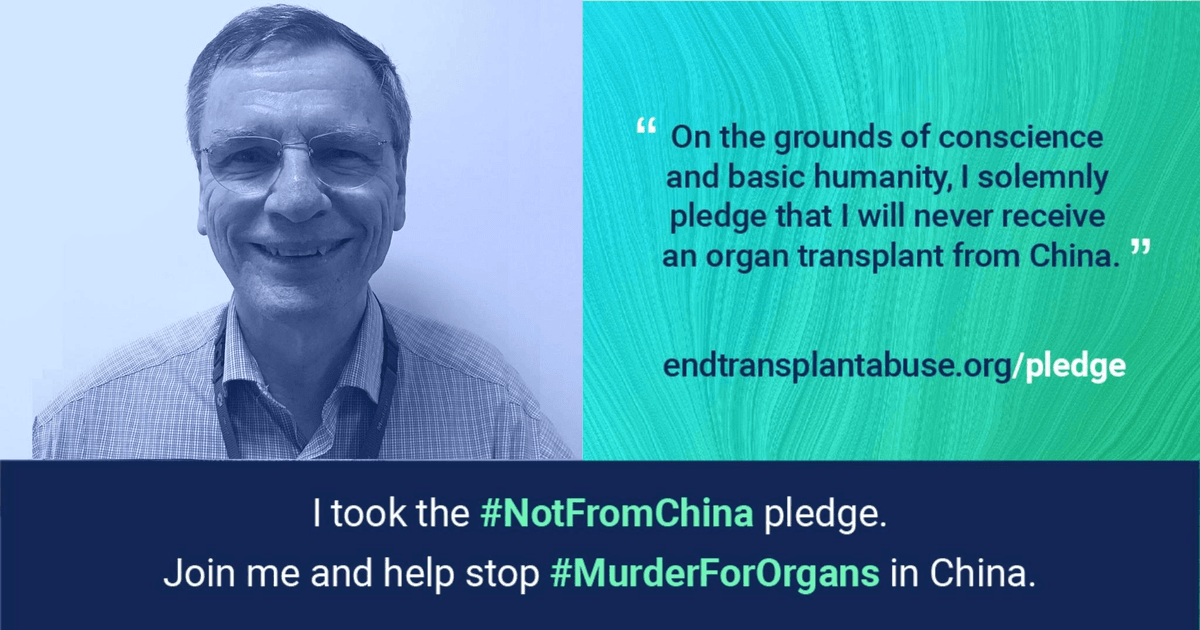
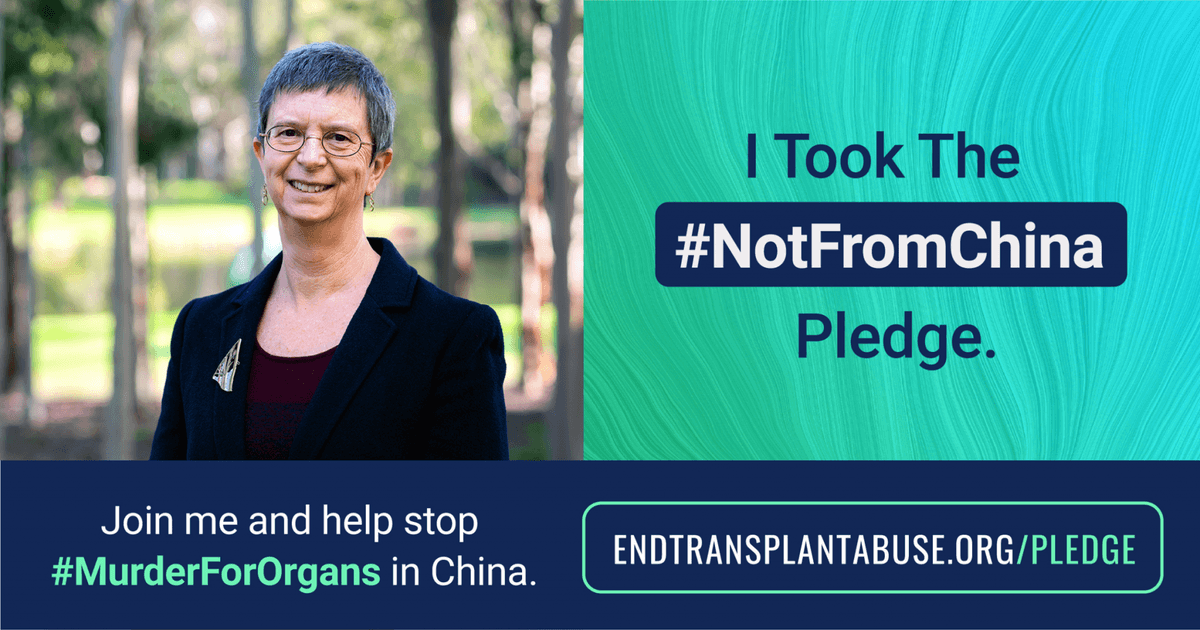
Taking the pledge, Hughes said, is a way to demonstrate that this issue matters to you.
“It helps mobilize a global movement to expose this abuse,” she said. “We hope that people from all walks of life will take the pledge and that together we can generate enough interest for this issue to receive the global attention that it deserves.
“Stand on the side of justice and freedom, and speak to others about what is going on. Break the silence, support the oppressed, and have hope.”
